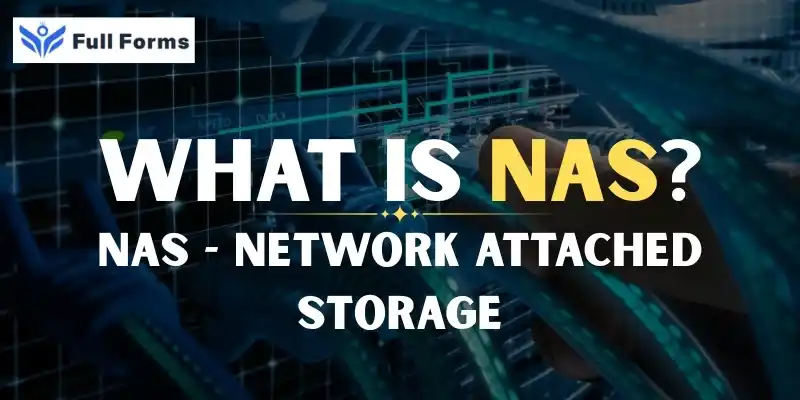Network Attached Storage
(NAS)

Description
What is NAS (Network Attached Storage)?
A Beginner's Guide to Understanding NAS
Have you ever run out of space on your phone, laptop, or computer? Or needed a way to move files from one device to another at home or at work? That's where Network Attached Storage (NAS) comes in.
This article will explain what NAS is, how it works, and why more people and businesses are using it. We'll do it in a way that's easy to understand.
What does NAS mean?
Network Attached Storage (NAS) is a storage device that connects to your network and lets many people and devices store, access, and share files from one place.
Think of NAS as your own private cloud at home or at work. It's like Google Drive or Dropbox, but you have full control over it.
It usually looks like a small box with hard drives in it. When connected to your Wi-Fi router or local network, anyone on the network can use it to back up files, stream media, or share documents.
How does NAS work?
- Connect to Network: You can connect the NAS device to your home or office network using either an Ethernet cable or Wi-Fi.
- Add Storage Drives: The NAS box has one or more hard drives or SSDs inside that hold your files.
- Device Access: You can access the files from any device on the same network, such as a smartphone, laptop, or TV.
- Remote Access: You can access your files from anywhere in the world with many NAS devices.
Why Use NAS?
- Sharing files: Easily share music, videos, photos, and documents with others on the same network.
- Backup your data: Back up your computers and other devices regularly to avoid losing important files.
- Media Server: Play movies, TV shows, or music on smart TVs and other devices.
- Remote Work: Like cloud storage, you can get to files from anywhere.
- Data Protection: Some NAS systems have RAID, which keeps your data safe even if one drive fails.
Cloud Storage vs. NAS
| Feature | NAS | Cloud Storage |
|---|---|---|
| Ownership | You own the hardware | Managed by a third party |
| Cost (long term) | One-time hardware cost | Monthly or yearly fees |
| Storage Limits | Depends on drive size | Upgrade costs more |
| Speed | Fast on local network | Depends on internet speed |
| Privacy | Full control over data | Stored on external servers |
1. Home Use of NAS
- Keep your movies, music, and photos in one place and stream them.
- Back up all family computers and phones.
- Let everyone in the house access shared files.
2. Use for Small Businesses
- Central file storage for all team members.
- Daily backup of important business files.
- Remote access for working from home.
3. People who work in the arts
- Photographers, videographers, and designers can store large files.
- Easy sharing for collaboration.
- Secure data with backup and RAID support.
What does RAID mean in NAS?
RAID stands for "Redundant Array of Independent Disks." It's a method of protecting data by storing it across multiple drives.
- RAID 1: Data is mirrored (copied) on two drives. One can fail without data loss.
- RAID 5: Data and parity are distributed across three or more drives.
- RAID 0: Combines drives for speed but no backup if one fails.
How to Pick a NAS Device?
- Drive Bays: More bays allow more storage and RAID configurations.
- Storage Capacity: Choose based on your needs.
- Processor and RAM: Better specs mean faster file access and media streaming.
- Apps and Features: Some come with built-in apps for media, cloud sync, and backup.
- Ease of Use: Look for user-friendly options.
Popular NAS brands: Seagate NAS, Synology, QNAP, WD My Cloud.
Pros and Cons of NAS
- Pros: Centralized storage, remote access, file sharing, cost-saving, secure and private.
- Cons: Initial cost, setup knowledge needed, requires maintenance and updates.
Last Thoughts
Network Attached Storage (NAS) gives you control over your own private cloud. Whether you're storing family photos, backing up work files, or streaming media to your devices, NAS offers a secure, flexible, and convenient solution.
It's ideal for anyone who wants more control over their files without depending on third-party cloud services. Once you start using NAS, you'll wonder how you managed without it!
